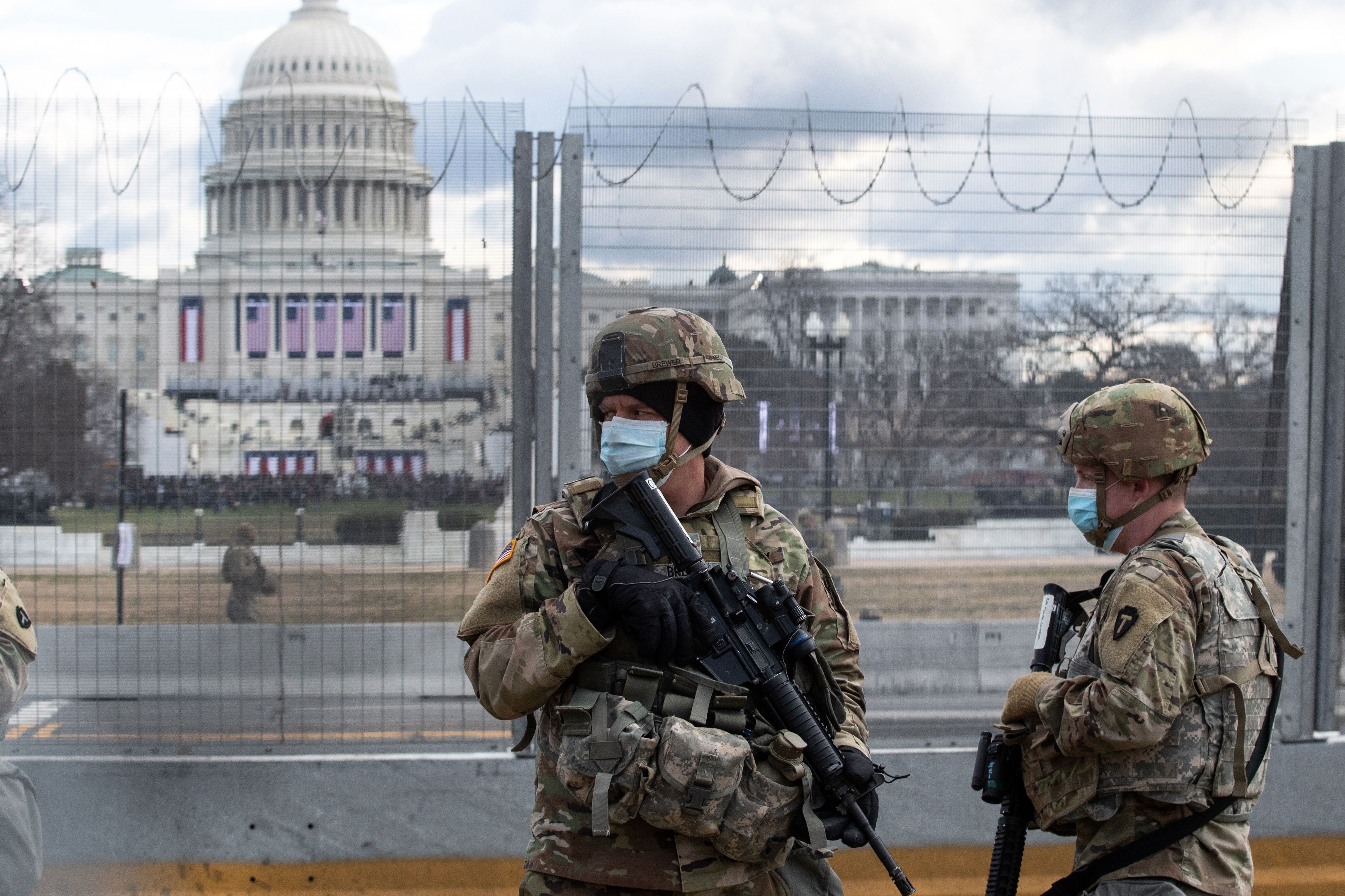A day before the one year anniversary of the attempted insurrection at the U.S. Capitol Building, the chief of the U.S. Capitol Police said he is more closely coordinating with Defense Department officials to make sure the campus is ready for future threats.
“We will be tested again,” Thomas Manger, who took over the police force after last year’s assault, said in testimony before the Senate Rules Committee on Wednesday. “I don’t know who it’s going to be or when it’s going to be, but we will likely be tested again.
“What will be different is that we will be paying much more attention to the information that we gather ahead of time, we will be putting together a better plan, we will be getting the help that we need here on campus.”
On Jan. 6, 2020, hundreds of supporters of President Donald Trump pushed past police in an attempt to disrupt Congress’ certification of the November 2020 presidential election results.
Four rioters died during the attack, and three Capitol Hill police officers died in following days from medical complications and suicide believed to be connected to the violence.
In the months since, lawmakers have launched numerous investigations into the instigators behind the attacks and the security missteps that lead to the House and Senate chambers being breached. Members of Congress were forced to temporarily halt the certification and abandon the building as National Guard troops and other law enforcement officials secured the building.
Manger said more work still needs to be done, but he is confident that the campus is more secure than a year ago.
That is in large part because of new authorities for his office to directly contact Defense Department officials in cases of emergency. Previously, any request for National Guard assistance had to go through a cumbersome process involving the Capitol Police Board.
In the case of last year’s attack, it took several hours for Guard members to arrive on campus after Capitol Police forces were overwhelmed.
“If the time ever came that we needed to make that call again, everyone would know what the expectations are on both sides of the call,” he said. “That is very helpful.
“But my hope is that with the other processes and planning that we put into place, there’s not going to be the need for it. "
Manger said the force is improving its own intelligence gathering work to ensure they aren’t caught unprepared for future large demonstrations. The force is also working with the Defense Department on ways to better preset personnel in cases where such backup may be needed.
“We have that relationship with the National Guard now,” he said. “All these things have been formalized, and we’ve talked about it ahead of time. So there’s not going to be a panic call.”
About 26,000 National Guard troops were mobilized in the wake of the Jan. 6 attack to provide security before and after the inauguration of President Joe Biden. Several thousand remained on the Capitol campus until late spring.
On Tuesday, Pentagon officials said they have not received any formal requests for security assistance from Capitol Police or Washington, D.C. officials ahead of the one-year anniversary of the attack.
Reporter Meghann Myers contributed to this story.
Leo covers Congress, Veterans Affairs and the White House for Military Times. He has covered Washington, D.C. since 2004, focusing on military personnel and veterans policies. His work has earned numerous honors, including a 2009 Polk award, a 2010 National Headliner Award, the IAVA Leadership in Journalism award and the VFW News Media award.





